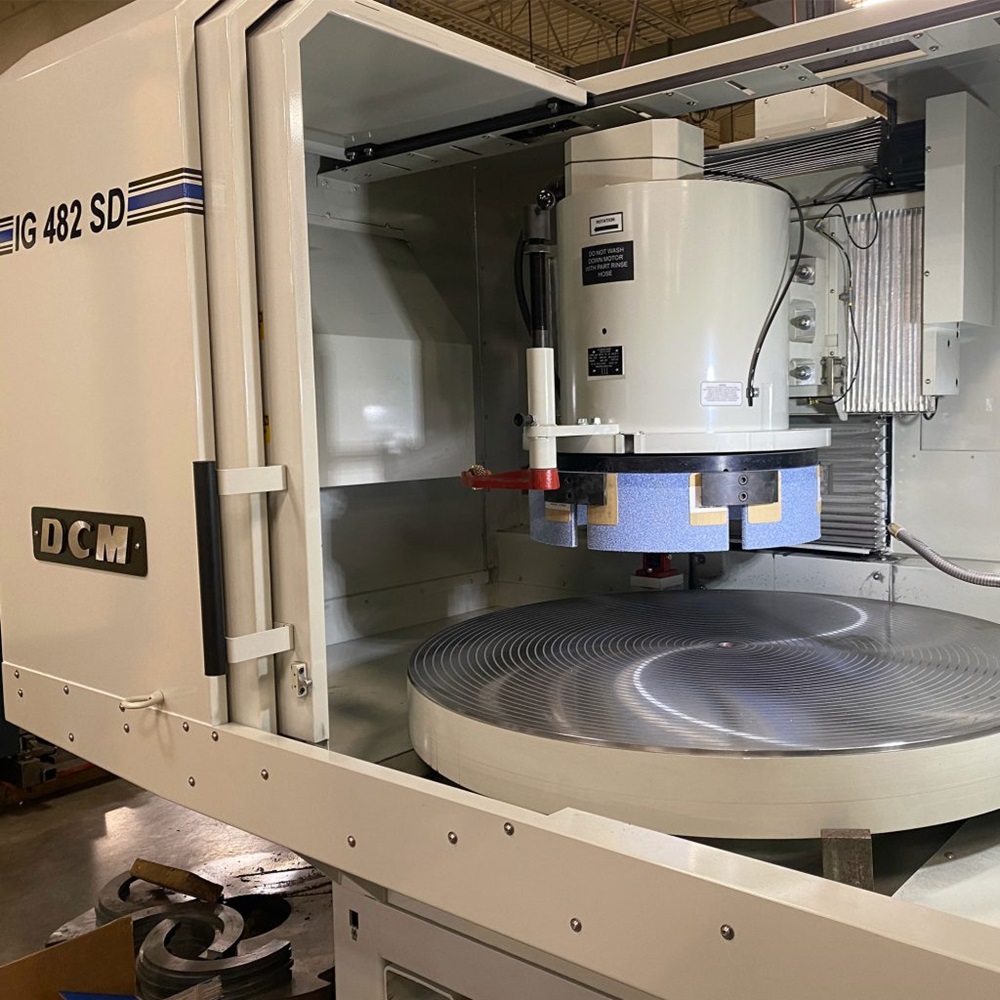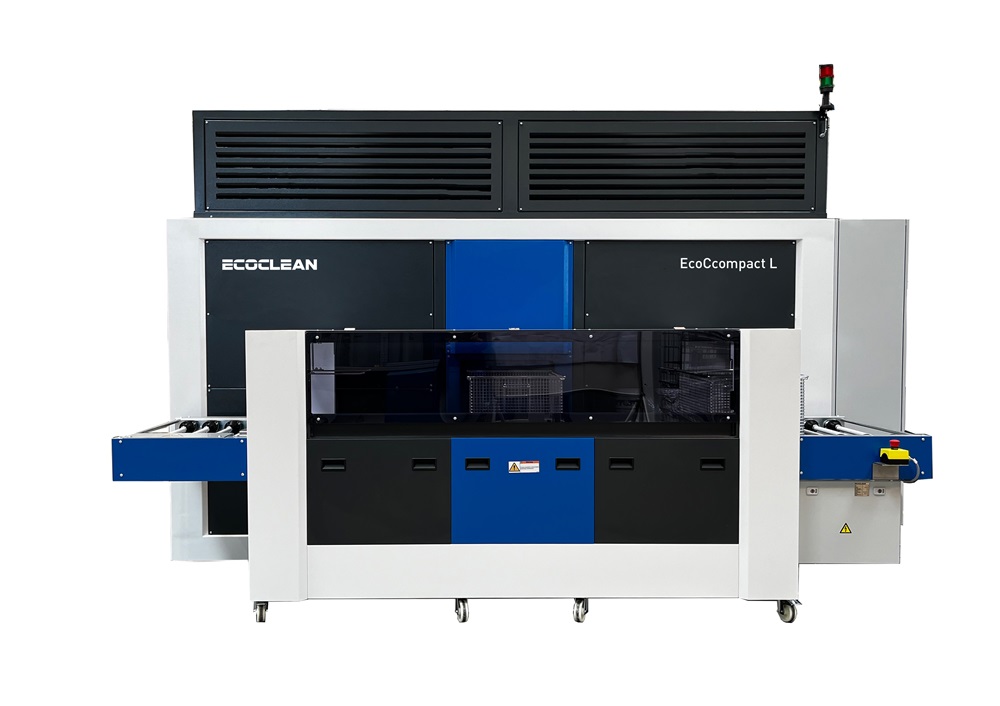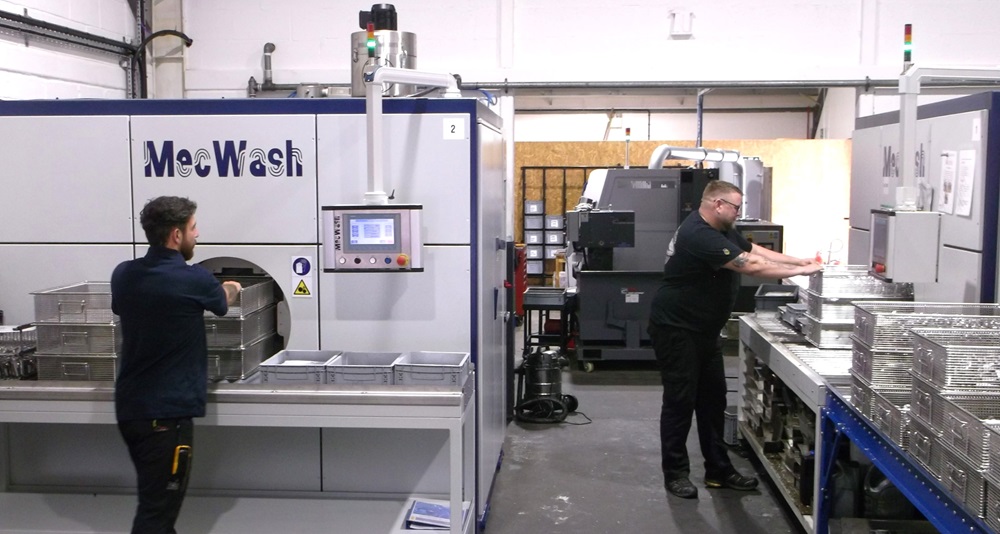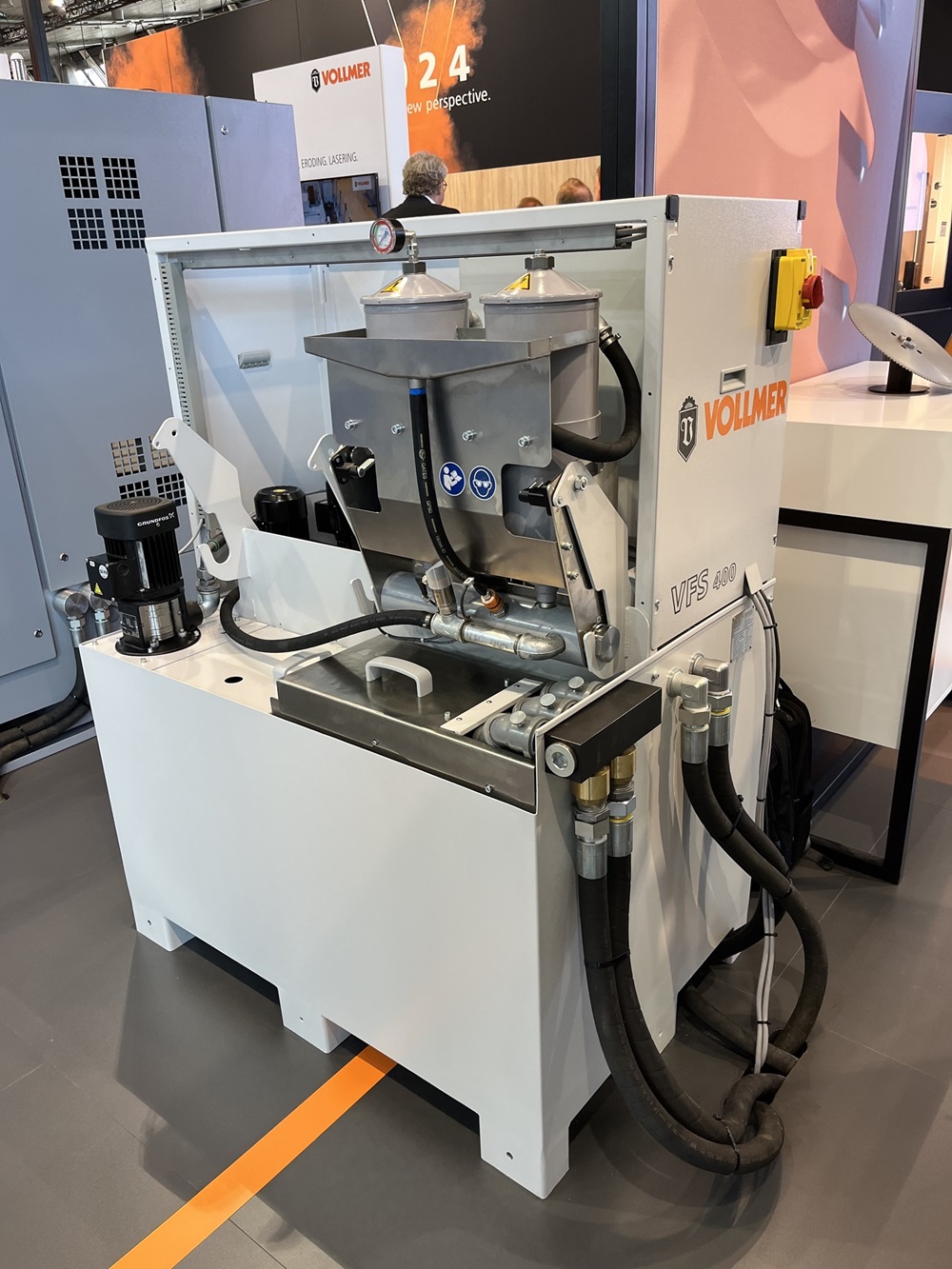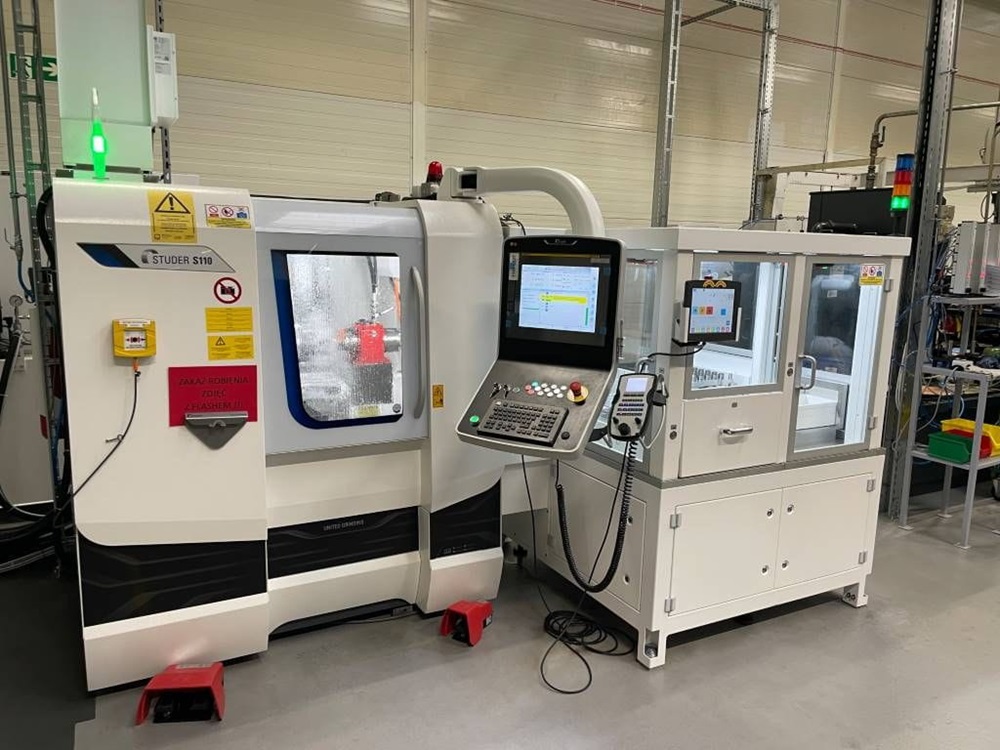RK International Machine Tools is entering a special relationship with US-based machine tool manufacturer DCM Tech that will bring the latter’s surface grinding machines to the UK and Irish markets.
DCM Tech is renowned for its IG series surface grinders, which offer features such as a user-friendly interface, variable speed spindle and table control, automatic down feed, automatic part detection, and a closed-loop coolant filtration system. Built across two control platforms, the IG 80 series provides the basics for rotary table surface grinding. Enhancements on the IG 82 series include additional grinding options such as regrind and continuous grind, along with servo precision-controlled X and Z axes with home positioning.
IG 82 series machines are available with auto-dressing capability featuring selectable dress frequency. These grinders also come ‘robot ready’, offering integration with third-party robotic arms for a fully automated loading and unloading processes. The IG range provides capacities to 1220 mm diameter rotary table with a maximum swing of 1320 mm diameter.
Jennifer Rutz, president of DCM Tech Inc, says: “We’re excited to collaborate with RK International Machine Tools and expand our surface grinding technology presence in the UK and Ireland. RK International’s experience and commitment to customer satisfaction align perfectly with our values. We believe this alliance will benefit UK customers significantly, offering cutting-edge solutions for their grinding needs.”
RK International’s team of factory-trained technical specialists will provide support services, including installation, maintenance and training, ensuring that customers can maximise the performance and longevity of their DCM Tech machines.
More information www.rk-int.com






